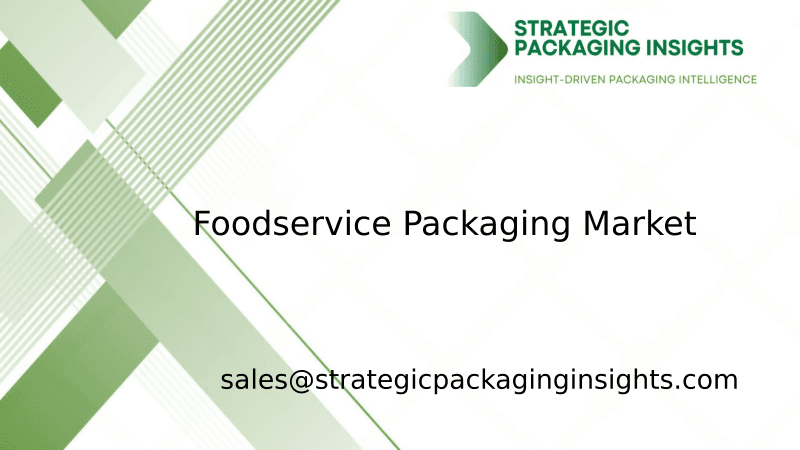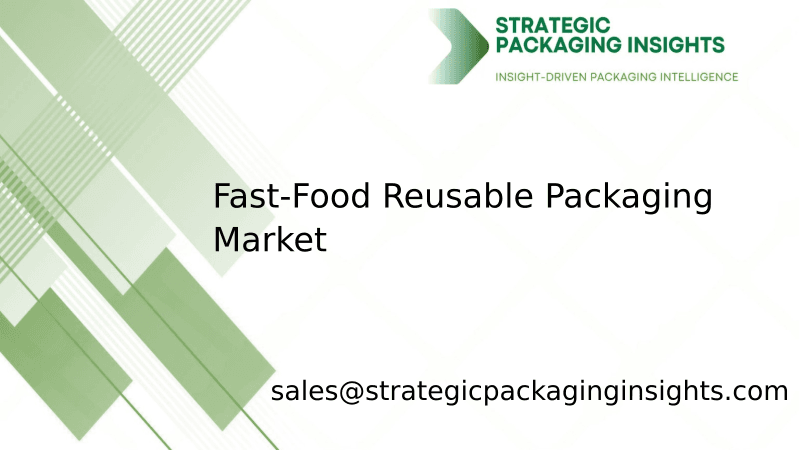- Home
- Packaging Products
- Loose Fill Packaging Market Size, Future Growth and Forecast 2033
Loose Fill Packaging Market Size, Future Growth and Forecast 2033
Loose Fill Packaging Market Segments - by Material (Expanded Polystyrene, Starch-based, Recycled Paper, Others), Application (Food & Beverages, Electronics, Pharmaceuticals, Personal Care, Others), End-User (Retail, E-commerce, Manufacturing, Others), and Region (Asia Pacific, North America, Latin America, Europe, and Middle East & Africa) - Market Dynamics, Growth Opportunities, Strategic Drivers, and PESTLE Outlook (2025–2033)
Loose Fill Packaging Market Outlook
The loose fill packaging market was valued at $1.2 billion in 2024 and is projected to reach $1.8 billion by 2033, growing at a CAGR of 4.5% during the forecast period 2025–2033. Loose fill packaging, commonly used for cushioning and protecting goods during transit, has seen a steady rise in demand due to the booming e-commerce sector and increased global trade activities. The market is driven by the need for cost-effective, lightweight, and environmentally friendly packaging solutions. With the rise in online shopping, particularly in emerging economies, the demand for loose fill packaging is expected to grow significantly. Additionally, innovations in biodegradable and recyclable materials are further propelling market growth, as consumers and companies alike are becoming more environmentally conscious.
However, the market faces challenges such as stringent environmental regulations and the availability of alternative packaging solutions. Regulatory bodies across the globe are imposing strict guidelines on the use of non-biodegradable materials, which could hinder market growth. Despite these challenges, the market holds significant growth potential, particularly with the increasing adoption of Sustainable Packaging solutions. Companies are investing in research and development to create innovative products that meet regulatory standards while providing effective protection for goods. The shift towards eco-friendly materials presents a lucrative opportunity for market players to expand their product offerings and capture a larger market share.
Report Scope
| Attributes | Details |
| Report Title | Loose Fill Packaging Market Size, Future Growth and Forecast 2033 |
| Base Year | 2024 |
| Historic Data | 2017-2023 |
| Forecast Period | 2025-2033 |
| Number of Pages | 184 |
| Material | Expanded Polystyrene, Starch-based, Recycled Paper, Others |
| Application | Food & Beverages, Electronics, Pharmaceuticals, Personal Care, Others |
| End-User | Retail, E-commerce, Manufacturing, Others |
| Region | Asia Pacific, North America, Latin America, Europe, Middle East & Africa |
| Customization Available | Yes* |
Opportunities & Threats
The loose fill packaging market presents numerous opportunities, primarily driven by the growing e-commerce industry. As online shopping continues to surge, the demand for efficient and Protective Packaging solutions is on the rise. Loose fill packaging offers a cost-effective and lightweight solution for protecting goods during transit, making it an attractive option for e-commerce businesses. Additionally, the increasing focus on sustainability and environmental responsibility is driving the demand for biodegradable and recyclable loose fill packaging materials. Companies that invest in developing eco-friendly packaging solutions are likely to gain a competitive edge in the market.
Another significant opportunity lies in the expansion of the global trade network. As international trade continues to grow, the need for reliable and protective packaging solutions becomes more critical. Loose fill packaging provides an effective solution for safeguarding goods during long-distance transportation, reducing the risk of damage and ensuring customer satisfaction. Furthermore, advancements in material technology are enabling the development of innovative loose fill packaging products that offer enhanced protection and sustainability. Companies that leverage these technological advancements can capitalize on the growing demand for high-performance packaging solutions.
Despite the opportunities, the loose fill packaging market faces several threats, including stringent environmental regulations and the availability of alternative packaging solutions. Regulatory bodies worldwide are imposing strict guidelines on the use of non-biodegradable materials, which could limit the growth of the market. Additionally, the increasing availability of alternative packaging solutions, such as air pillows and foam sheets, poses a threat to the loose fill packaging market. These alternatives offer similar protective benefits and are often perceived as more environmentally friendly, which could impact the demand for traditional loose fill packaging products.
The loose fill packaging market is characterized by a competitive landscape with several key players vying for market share. The market is dominated by a few major companies, each holding a significant portion of the market. These companies are focused on expanding their product portfolios and enhancing their production capabilities to meet the growing demand for loose fill packaging solutions. The competitive landscape is further intensified by the presence of numerous regional and local players, who offer cost-effective solutions and cater to specific customer needs.
Among the major players in the loose fill packaging market, Storopack Hans Reichenecker GmbH holds a significant market share. The company is known for its innovative packaging solutions and strong focus on sustainability. Storopack offers a wide range of loose fill packaging products, including biodegradable and recyclable options, which have gained popularity among environmentally conscious consumers. Another key player, Sealed Air Corporation, is renowned for its extensive product portfolio and global presence. The company has a strong focus on research and development, continuously innovating to provide high-performance packaging solutions.
FP International, a subsidiary of Pregis Corporation, is another prominent player in the loose fill packaging market. The company offers a comprehensive range of packaging solutions, including biodegradable loose fill products. FP International is committed to sustainability and has implemented several initiatives to reduce its environmental impact. Additionally, Nefab Group, a global packaging solutions provider, has a strong presence in the loose fill packaging market. The company offers customized packaging solutions tailored to meet the specific needs of its clients, ensuring optimal protection and cost-efficiency.
Other notable players in the market include Ranpak Holdings Corp., which specializes in sustainable packaging solutions, and ACH Foam Technologies, known for its high-quality expanded polystyrene products. These companies, along with several others, are actively investing in research and development to enhance their product offerings and gain a competitive edge in the market. The loose fill packaging market is expected to witness increased competition as companies strive to meet the growing demand for sustainable and efficient packaging solutions.
Key Highlights Loose Fill Packaging Market

- Growing demand for eco-friendly and biodegradable loose fill packaging solutions.
- Significant growth in the e-commerce sector driving market demand.
- Advancements in material technology enabling innovative product development.
- Stringent environmental regulations impacting market dynamics.
- Expansion of global trade network boosting demand for protective packaging.
- Increased focus on sustainability and environmental responsibility.
- Competitive landscape characterized by major players and regional competitors.
- Rising consumer awareness about the environmental impact of packaging materials.
- Investment in research and development to enhance product offerings.
- Growing adoption of loose fill packaging in various end-user industries.
Top Countries Insights in Loose Fill Packaging
The United States is a leading market for loose fill packaging, with a market size of approximately $300 million and a CAGR of 5%. The country's robust e-commerce sector and increasing focus on sustainable packaging solutions are driving market growth. The presence of major market players and advancements in material technology further contribute to the market's expansion. However, stringent environmental regulations pose a challenge to market growth, prompting companies to invest in eco-friendly packaging solutions.
Germany is another significant market for loose fill packaging, with a market size of around $200 million and a CAGR of 4%. The country's strong manufacturing sector and emphasis on sustainability are key growth drivers. Germany's commitment to environmental responsibility and innovation in packaging materials is fostering market growth. However, the availability of alternative packaging solutions presents a challenge to the market's expansion.
China, with a market size of approximately $250 million and a CAGR of 6%, is experiencing rapid growth in the loose fill packaging market. The country's booming e-commerce industry and increasing demand for protective packaging solutions are driving market expansion. China's focus on sustainable development and investment in innovative packaging technologies are further propelling market growth. However, regulatory challenges and competition from alternative packaging solutions pose potential threats.
In the United Kingdom, the loose fill packaging market is valued at around $150 million, with a CAGR of 3%. The country's growing e-commerce sector and emphasis on sustainability are key growth drivers. The presence of major market players and advancements in material technology contribute to the market's expansion. However, stringent environmental regulations and the availability of alternative packaging solutions present challenges to market growth.
India, with a market size of approximately $100 million and a CAGR of 7%, is witnessing significant growth in the loose fill packaging market. The country's expanding e-commerce industry and increasing demand for cost-effective packaging solutions are driving market growth. India's focus on sustainable development and investment in innovative packaging technologies are further propelling market expansion. However, regulatory challenges and competition from alternative packaging solutions pose potential threats.
Value Chain Profitability Analysis
The value chain of the loose fill packaging market involves several key stakeholders, including raw material suppliers, manufacturers, distributors, and end-users. Each stage of the value chain plays a crucial role in determining the overall profitability of the market. Raw material suppliers provide essential inputs such as expanded polystyrene, starch-based materials, and recycled paper, which are used in the production of loose fill packaging products. Manufacturers then process these materials to create a variety of packaging solutions, catering to different end-user needs.
Distributors play a vital role in the value chain by ensuring the efficient distribution of loose fill packaging products to various end-users, including retail, e-commerce, and manufacturing sectors. The profitability of each stakeholder in the value chain is influenced by factors such as production costs, pricing strategies, and market demand. Manufacturers typically capture a significant share of the market value, as they are responsible for producing and innovating packaging solutions. However, distributors also play a crucial role in capturing market value by ensuring the timely delivery of products to end-users.
Digital transformation is reshaping the value chain of the loose fill packaging market, with technology platforms and consultancies playing an increasingly important role. These stakeholders provide valuable insights and solutions to optimize production processes, reduce costs, and enhance product offerings. As a result, the profitability of technology platforms and consultancies is on the rise, as they capture a growing share of the overall market value. The shift towards digital solutions is also enabling manufacturers and distributors to streamline operations, improve efficiency, and enhance customer satisfaction, ultimately driving profitability across the value chain.
Evolving Market Dynamics (2018–2024) and Strategic Foresight (2025–2033)
The loose fill packaging market has undergone significant changes between 2018 and 2024, with evolving market dynamics shaping the industry's landscape. During this period, the market experienced steady growth, driven by the increasing demand for protective packaging solutions in the e-commerce sector. The market size expanded as companies invested in research and development to create innovative and sustainable packaging products. The competitive landscape was characterized by the presence of major players and regional competitors, each vying for market share.
Looking ahead to the forecast period of 2025–2033, the loose fill packaging market is expected to witness further growth, driven by the continued expansion of the e-commerce industry and the increasing focus on sustainability. The market is projected to experience a shift in segment distribution, with biodegradable and recyclable materials gaining prominence. Technological advancements are expected to play a crucial role in shaping the market's future, enabling the development of high-performance packaging solutions that meet regulatory standards and consumer demands.
Regional contribution changes are anticipated, with emerging economies such as China and India expected to capture a larger share of the market. These countries are experiencing rapid growth in the e-commerce sector and are investing in sustainable packaging solutions, driving market expansion. The strategic imperatives for market players during this period will include a focus on innovation, sustainability, and digital transformation. Companies that leverage these strategic drivers are likely to gain a competitive edge and capture a larger share of the growing loose fill packaging market.
Loose Fill Packaging Market Segments Insights

Material Analysis
The loose fill packaging market is segmented by material into expanded polystyrene, starch-based, recycled paper, and others. Expanded polystyrene is a widely used material due to its lightweight and cost-effective properties. However, the increasing focus on sustainability is driving the demand for starch-based and recycled paper materials, which are biodegradable and environmentally friendly. Companies are investing in research and development to create innovative materials that offer enhanced protection and meet regulatory standards.
Starch-based materials are gaining popularity due to their biodegradable nature and ability to provide effective cushioning for goods during transit. These materials are derived from renewable resources, making them an attractive option for environmentally conscious consumers. Recycled paper is also witnessing increased demand, as it offers a sustainable alternative to traditional packaging materials. The shift towards eco-friendly materials is expected to drive market growth, as companies strive to meet consumer demands for sustainable packaging solutions.
Application Analysis
The loose fill packaging market is segmented by application into food & beverages, electronics, pharmaceuticals, personal care, and others. The food & beverages sector is a significant contributor to market demand, as loose fill packaging provides effective protection for perishable goods during transportation. The electronics industry also relies heavily on loose fill packaging to safeguard delicate components and devices from damage during transit.
The pharmaceuticals sector is another key application area, as loose fill packaging ensures the safe delivery of sensitive medical products. The personal care industry is also witnessing increased demand for loose fill packaging, as companies seek to protect fragile cosmetic products during shipping. The growing demand for protective packaging solutions across various industries is driving market growth, as companies prioritize the safe delivery of their products to consumers.
End-User Analysis
The loose fill packaging market is segmented by end-user into retail, e-commerce, manufacturing, and others. The e-commerce sector is a major driver of market demand, as online retailers require efficient and protective packaging solutions to ensure customer satisfaction. The retail industry also relies on loose fill packaging to protect goods during transportation and storage.
The manufacturing sector is another key end-user, as companies seek to safeguard their products during the production and distribution process. The growing demand for loose fill packaging across various end-user industries is driving market growth, as companies prioritize the safe and efficient delivery of their products. The shift towards sustainable packaging solutions is also influencing end-user preferences, as companies seek to align their operations with environmental responsibility.
Regional Analysis
The loose fill packaging market is segmented by region into Asia Pacific, North America, Latin America, Europe, and Middle East & Africa. Asia Pacific is a significant market for loose fill packaging, driven by the rapid growth of the e-commerce sector and increasing demand for protective packaging solutions. North America is another key market, with a strong focus on sustainability and innovation in packaging materials.
Europe is witnessing steady growth in the loose fill packaging market, as companies prioritize environmental responsibility and invest in sustainable packaging solutions. Latin America and the Middle East & Africa are also experiencing growth, driven by the expansion of the e-commerce industry and increasing demand for cost-effective packaging solutions. The regional dynamics of the loose fill packaging market are influenced by factors such as economic growth, regulatory policies, and consumer preferences, shaping the market's future landscape.
Loose Fill Packaging Market Segments
The Loose Fill Packaging market has been segmented on the basis of
Material
- Expanded Polystyrene
- Starch-based
- Recycled Paper
- Others
Application
- Food & Beverages
- Electronics
- Pharmaceuticals
- Personal Care
- Others
End-User
- Retail
- E-commerce
- Manufacturing
- Others
Region
- Asia Pacific
- North America
- Latin America
- Europe
- Middle East & Africa
Primary Interview Insights
What are the key drivers of growth in the loose fill packaging market?
How are environmental regulations impacting the market?
What role does innovation play in the loose fill packaging market?
Which regions are expected to see the most growth?
What are the major challenges facing the loose fill packaging market?
Latest Reports

The fiber drums market was valued at $1.2 billion in 2024 and is projected to reach $2.1 billion by 2033, growing at a CAGR of 6.5% during the forecast period 2025–2033.

The cosmetics and perfumery glass bottles market was valued at $1.5 billion in 2024 and is projected to reach $2.3 billion by 2033, growing at a CAGR of 4.8% during the forecast period 2025–2033.

The medical devices packaging market was valued at $25 billion in 2024 and is projected to reach $40 billion by 2033, growing at a CAGR of 5.5% during the forecast period 2025–2033.

The primary packaging labels market was valued at $35 billion in 2024 and is projected to reach $55 billion by 2033, growing at a CAGR of 5.2% during the forecast period 2025–2033.

The corrugated board packaging market was valued at $250 billion in 2024 and is projected to reach $380 billion by 2033, growing at a CAGR of 4.5% during the forecast period 2025–2033.

The Water Soluble Packaging Films market was valued at $2.8 billion in 2024 and is projected to reach $5.6 billion by 2033, growing at a CAGR of 8.1% during the forecast period 2025–2033.

The Aluminium Foil Packaging market was valued at $25 billion in 2024 and is projected to reach $40 billion by 2033, growing at a CAGR of 5.5% during the forecast period 2025–2033.

The self-heating food packaging market was valued at $4.5 billion in 2024 and is projected to reach $7.8 billion by 2033, growing at a CAGR of 6.2% during the forecast period 2025–2033.

The Smart Container market was valued at $2.5 billion in 2024 and is projected to reach $8.7 billion by 2033, growing at a CAGR of 14.5% during the forecast period 2025–2033.

The Automatic Labeling Machine market was valued at $2.5 billion in 2024 and is projected to reach $4.8 billion by 2033, growing at a CAGR of 7.2% during the forecast period 2025–2033.

The Hot Melt Glue Labeler market was valued at $1.2 billion in 2024 and is projected to reach $2.3 billion by 2033, growing at a CAGR of 6.5% during the forecast period 2025–2033.

The Ethical Label market was valued at $1.5 billion in 2024 and is projected to reach $3.2 billion by 2033, growing at a CAGR of 8.5% during the forecast period 2025–2033.

The Packaging Tensioner market was valued at $1.2 billion in 2024 and is projected to reach $2.3 billion by 2033, growing at a CAGR of 6.5% during the forecast period 2025–2033.

The foodservice packaging market was valued at $120 billion in 2024 and is projected to reach $180 billion by 2033, growing at a CAGR of 4.5% during the forecast period 2025–2033.

The nano-enabled packaging market was valued at $15.2 billion in 2024 and is projected to reach $35.6 billion by 2033, growing at a CAGR of 9.5% during the forecast period 2025–2033.

The Cold Seal Packaging market was valued at $1.5 billion in 2024 and is projected to reach $2.3 billion by 2033, growing at a CAGR of 4.8% during the forecast period 2025–2033.

The Transparent Barrier Packaging Films market was valued at $12.5 billion in 2024 and is projected to reach $20.3 billion by 2033, growing at a CAGR of 5.8% during the forecast period 2025–2033.

The Flatback Tape market was valued at $2.5 billion in 2024 and is projected to reach $4.1 billion by 2033, growing at a CAGR of 5.8% during the forecast period 2025–2033.

The packer bottle market was valued at $3.5 billion in 2024 and is projected to reach $5.8 billion by 2033, growing at a CAGR of 5.2% during the forecast period 2025–2033.

The Canada Nano-Enabled Packaging Food Beverages market was valued at $1.2 billion in 2024 and is projected to reach $3.5 billion by 2033, growing at a CAGR of 12.5% during the forecast period 2025–2033.

The India Aluminum Beverage Can market was valued at $1.2 billion in 2024 and is projected to reach $2.5 billion by 2033, growing at a CAGR of 8.5% during the forecast period 2025–2033.

The fast-food reusable packaging market was valued at $1.2 billion in 2024 and is projected to reach $3.5 billion by 2033, growing at a CAGR of 12.5% during the forecast period 2025–2033.

The pallets market was valued at $59.91 billion in 2024 and is projected to reach $88.69 billion by 2033, growing at a CAGR of 4.5% during the forecast period 2025–2033.

The lamination adhesives market was valued at $2.5 billion in 2024 and is projected to reach $4.1 billion by 2033, growing at a CAGR of 5.8% during the forecast period 2025–2033.

The garment packing machine market was valued at $1.2 billion in 2024 and is projected to reach $2.5 billion by 2033, growing at a CAGR of 8.5% during the forecast period 2025–2033.

The fiber drums market was valued at $1.2 billion in 2024 and is projected to reach $2.1 billion by 2033, growing at a CAGR of 6.5% during the forecast period 2025–2033.

The cosmetics and perfumery glass bottles market was valued at $1.5 billion in 2024 and is projected to reach $2.3 billion by 2033, growing at a CAGR of 4.8% during the forecast period 2025–2033.

The medical devices packaging market was valued at $25 billion in 2024 and is projected to reach $40 billion by 2033, growing at a CAGR of 5.5% during the forecast period 2025–2033.

The primary packaging labels market was valued at $35 billion in 2024 and is projected to reach $55 billion by 2033, growing at a CAGR of 5.2% during the forecast period 2025–2033.

The corrugated board packaging market was valued at $250 billion in 2024 and is projected to reach $380 billion by 2033, growing at a CAGR of 4.5% during the forecast period 2025–2033.

The Water Soluble Packaging Films market was valued at $2.8 billion in 2024 and is projected to reach $5.6 billion by 2033, growing at a CAGR of 8.1% during the forecast period 2025–2033.

The Aluminium Foil Packaging market was valued at $25 billion in 2024 and is projected to reach $40 billion by 2033, growing at a CAGR of 5.5% during the forecast period 2025–2033.

The self-heating food packaging market was valued at $4.5 billion in 2024 and is projected to reach $7.8 billion by 2033, growing at a CAGR of 6.2% during the forecast period 2025–2033.

The Smart Container market was valued at $2.5 billion in 2024 and is projected to reach $8.7 billion by 2033, growing at a CAGR of 14.5% during the forecast period 2025–2033.

The Automatic Labeling Machine market was valued at $2.5 billion in 2024 and is projected to reach $4.8 billion by 2033, growing at a CAGR of 7.2% during the forecast period 2025–2033.

The Hot Melt Glue Labeler market was valued at $1.2 billion in 2024 and is projected to reach $2.3 billion by 2033, growing at a CAGR of 6.5% during the forecast period 2025–2033.

The Ethical Label market was valued at $1.5 billion in 2024 and is projected to reach $3.2 billion by 2033, growing at a CAGR of 8.5% during the forecast period 2025–2033.

The Packaging Tensioner market was valued at $1.2 billion in 2024 and is projected to reach $2.3 billion by 2033, growing at a CAGR of 6.5% during the forecast period 2025–2033.

The foodservice packaging market was valued at $120 billion in 2024 and is projected to reach $180 billion by 2033, growing at a CAGR of 4.5% during the forecast period 2025–2033.

The nano-enabled packaging market was valued at $15.2 billion in 2024 and is projected to reach $35.6 billion by 2033, growing at a CAGR of 9.5% during the forecast period 2025–2033.

The Cold Seal Packaging market was valued at $1.5 billion in 2024 and is projected to reach $2.3 billion by 2033, growing at a CAGR of 4.8% during the forecast period 2025–2033.

The Transparent Barrier Packaging Films market was valued at $12.5 billion in 2024 and is projected to reach $20.3 billion by 2033, growing at a CAGR of 5.8% during the forecast period 2025–2033.

The Flatback Tape market was valued at $2.5 billion in 2024 and is projected to reach $4.1 billion by 2033, growing at a CAGR of 5.8% during the forecast period 2025–2033.

The packer bottle market was valued at $3.5 billion in 2024 and is projected to reach $5.8 billion by 2033, growing at a CAGR of 5.2% during the forecast period 2025–2033.

The Canada Nano-Enabled Packaging Food Beverages market was valued at $1.2 billion in 2024 and is projected to reach $3.5 billion by 2033, growing at a CAGR of 12.5% during the forecast period 2025–2033.

The India Aluminum Beverage Can market was valued at $1.2 billion in 2024 and is projected to reach $2.5 billion by 2033, growing at a CAGR of 8.5% during the forecast period 2025–2033.

The fast-food reusable packaging market was valued at $1.2 billion in 2024 and is projected to reach $3.5 billion by 2033, growing at a CAGR of 12.5% during the forecast period 2025–2033.

The pallets market was valued at $59.91 billion in 2024 and is projected to reach $88.69 billion by 2033, growing at a CAGR of 4.5% during the forecast period 2025–2033.

The lamination adhesives market was valued at $2.5 billion in 2024 and is projected to reach $4.1 billion by 2033, growing at a CAGR of 5.8% during the forecast period 2025–2033.

The garment packing machine market was valued at $1.2 billion in 2024 and is projected to reach $2.5 billion by 2033, growing at a CAGR of 8.5% during the forecast period 2025–2033.
